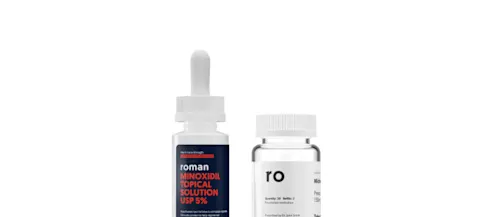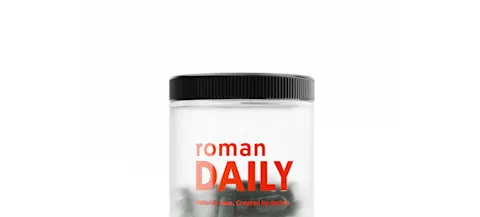Over 1,000,000+ Roman members
Testosterone Support Supplements
$15 for your first order
Hormone free
Free shipping
Pause anytime
You can’t get this blend anywhere else—five active ingredients backed by studies showing improvement in support of lowered testosterone levels and muscular health.
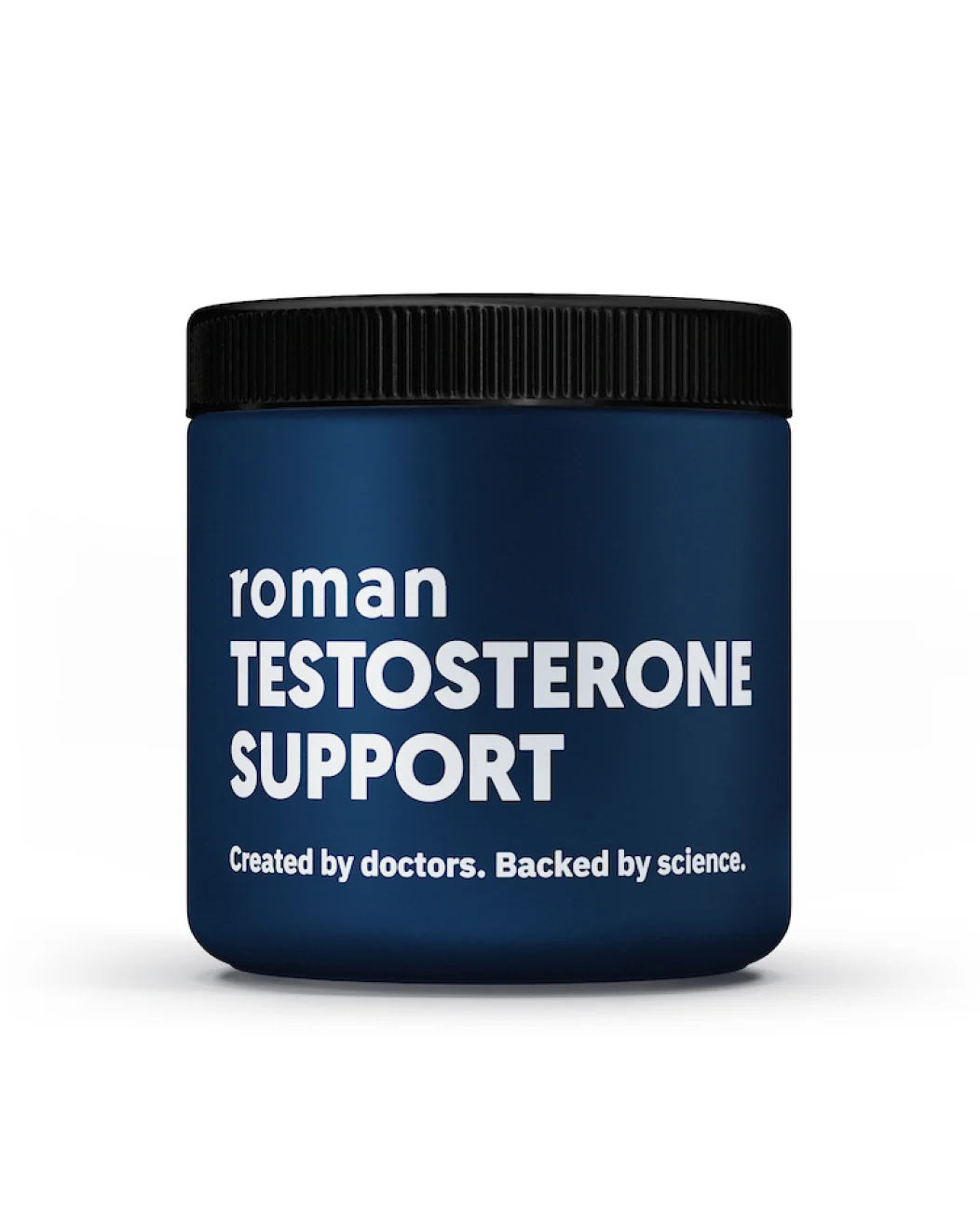
What's inside?
Six carefully sourced, vetted, and researched active ingredients that absorb into the body within hours.
Made in cGMP certified facility
Doctor formulated
Backed by science
Copper
Copper is an important trace mineral in the body that plays a role in a wide range of bodily functions.Read moreZinc
Zinc is an important trace mineral in the body that plays a role in muscle development.Read moreMagnesium
Magnesium is a very important mineral in the body that plays a role in many cellular processes, bone structure, and muscle function.Learn moreVitamin D3
Vitamin D3 is a fat-soluble vitamin that plays a role in bone health and supports several cellular processes.Read moreMaca
Maca, also known as "Peruvian ginseng," is a plant native to the high Andes mountains of Peru, where it grows at elevations over 4,000 feet. The maca plant is a starchy tuber resembling a turnip or a radish.Read more
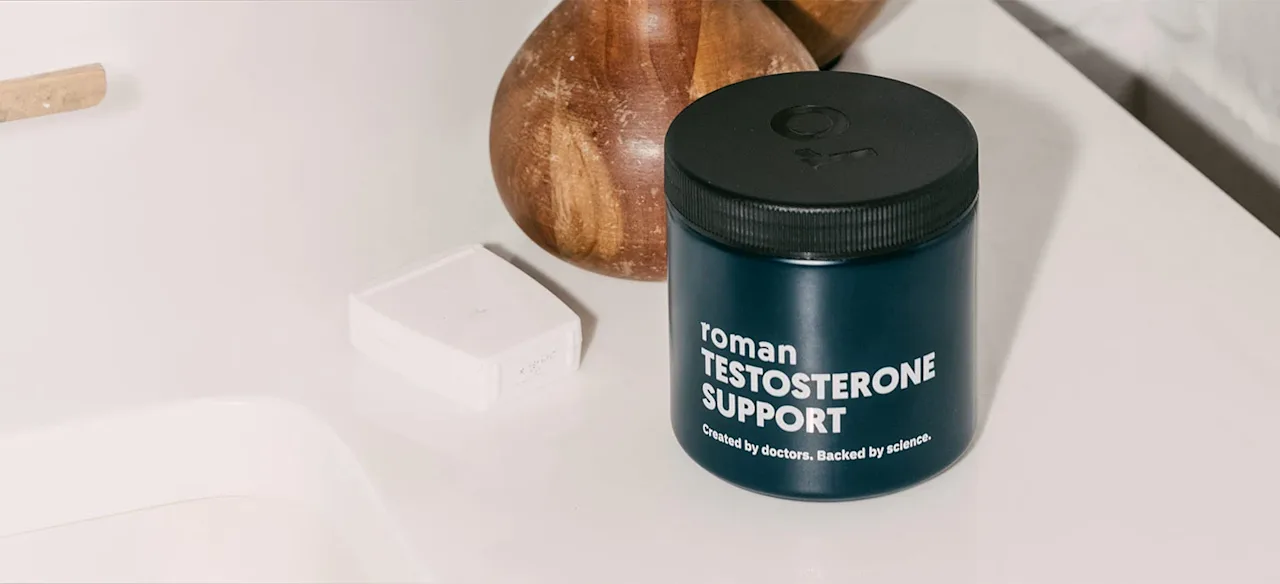
Know what you're taking
Transparency guaranteed
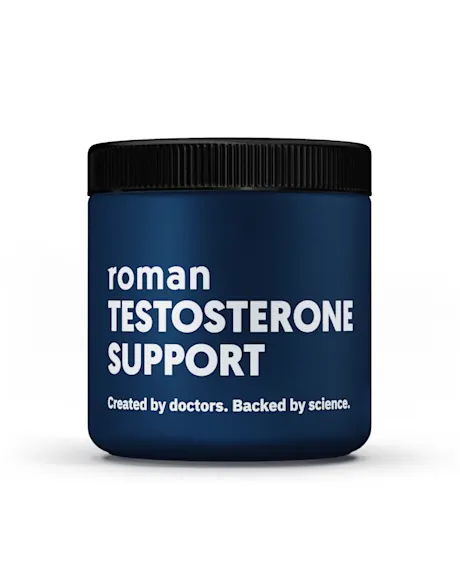
WHO
52% of Roman members surveyed said they're interested in taking a testosterone support supplement.
WHY
It's our mission to provide safe and accessible options for the products people are interested in.
HOW
That's why we formulated our own supplements with transparent ingredients you can trust.
Daily support
How to use
Daily
Take 4 tablets daily. Always take these supplements with a full meal.
With lunch
With dinner
For those with a sensitive stomach, we recommend taking 2 tablets with lunch and 2 tablets with dinner.
Remember - supplements are not a replacement for a healthy diet, exercise, and good sleep.
FAQ
For more information about testosterone support, Roman, Ro and more, visit our FAQ page. To speak to a care representative, email us at [email protected].
Testosterone is a steroid hormone that is present in the bodies of both men and women, although men have higher concentrations of it. Testosterone is made in the testes, ovaries, and adrenal glands and is derived from cholesterol. It is primarily responsible for the development of the male reproductive system and also plays a role in body hair growth, muscle mass, fat distribution, voice depth, and libido. In the body, some testosterone is converted into dihydrotestosterone, which plays a role in prostate enlargement and baldness, and estradiol, which is a type of estrogen. This supplement is hormone-free.
Roman's Testosterone support supplement is a mix of six main ingredients, including vitamin D3, zinc, magnesium, copper, ashwagandha, and maca. All six ingredients are generally well tolerated and some are important for overall health as well. Ashwagandha has also been shown to support testosterone health. Roman's Testosterone support supplement isn't intended to treat low testosterone and isn't a substitute for treatments prescribed by your healthcare provider.
Copper is included in Roman's Testosterone support supplement to help reduce the risk of developing a copper deficiency. The supplement contains 30 mg per day of zinc and taking high levels of zinc intake can reduce the amount of copper that is absorbed in the intestines. To help prevent this from occurring, some supplements that contain zinc also include copper.
Roman's Testosterone support supplement contains 350 mg per day of magnesium. This amount provides as much magnesium as possible per daily dose without exceeding the Tolerable Upper Intake Level of magnesium. This reduces the risk of experiencing side effects such as abdominal pain, nausea, and diarrhea.
It is recommended that men aged 19-30 consume 400 mg per day of magnesium and men ages >30 consume 420 mg per day of magnesium. However, consuming more than 350 mg per day through supplements may increase the risk of side effects. It is recommended that the remaining 50-70 mg per day come from food.
There are many different supplements on the market that advertise that they support healthy testosterone levels in men. While some individual ingredients may overlap between Roman's Testosterone support supplement and other brands, not all formulations are exactly the same. All six ingredients and their dosages in Roman's supplement were individually selected and specifically chosen.
Roman's Testosterone support supplement was not tested against or compared to any other products. Roman makes no claims about how this pack will affect your body compared to other testosterone support supplements.
Still have questions?
Visit the FAQs pageDiscover more
Feel your best, look your best
Explore our full range of products and prescription treatments. If appropriate, Ro-affiliated providers will create a personalized treatment plan for prescription treatments.
Erectile dysfunction
Don't put your love life on hold. Get medication prescribed by a US-licensed healthcare professional.
Learn moreHair loss
More hair, less hassle. Get medication prescribed by a US-licensed healthcare provider. All from the comfort of home.
Learn moreRoman Daily Multivitamin
Doctor-formulated with 23 nutrients, Roman Daily is optimized to support men’s health and physical activity.
Learn morePremature ejaculation
We offer prescription medications and an OTC treatment that is clinically proven to help you last longer.
Learn more







